‘The Lord Of The Rings: The Rings Of Power’ Showrunner Attempts To Explain The Disgraceful Sauron Reveal

The Lord of the Rings: The Rings of Power showrunner Patrick McKay recently attempted to explain their disgraceful reveal that Halbrand is actually Sauron.
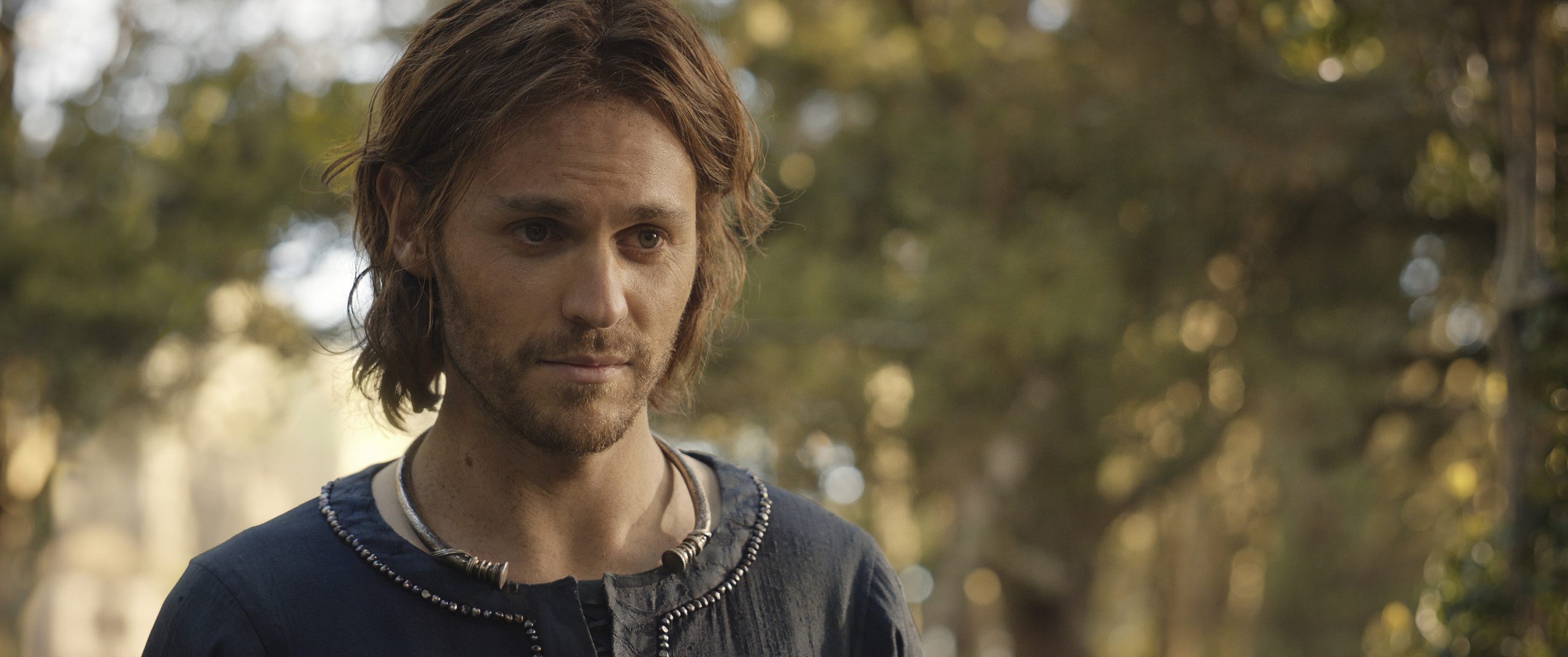
Charlie Vickers as Halbrand in The Lord of the Rings: The Rings of Power
In the season finale of the The Rings of Power, it’s revealed that Halbrand is Sauron and he’s been fooling Galadriel from the very beginning.
When Galadriel asks him to tell her his name, he responds, “I have been awake before the breaking of the first silence. In that time I have had many names.”
She then attempts to stab him before he mentally attacks her using her memories of her brother and their first encounter on the sea.
After denying a number of his attacks and his temptation to rule by his side, Halbrand becomes visibly angry and shouts at her, “What will they do when you tell them that you are my ally? When you tell them that Sauron lives because of you?”
Speaking to Vulture, showrunner Patrick McKay explained why he and his partner J.D. Payne decided to have Sauron disguised as Halbrand.
He explained, “One of the earliest ideas we had for the storyline came from the moment in The Fellowship of the Ring when Galadriel is tempted by Frodo’s offer of the Ring. She talks about how well she knows and understands Sauron, and there’s a quote where she says, ‘I know his mind, and he gropes ever to know mine, but still the door is shut.'”
“She clearly has a darkness — that turning down the Ring is a test she feels she has to pass to finally go West — and that the darkness in her is linked with her feelings about Sauron,” McKay added.
He went on to inform Vulture, “Very early in the writers’ room, we talked about how she and Sauron might have come into collision in an earlier life. We know he’s a deceiver and comes in disguise. If Galadriel were to bump into him in a Tolkienian chance meeting, that would be extremely unlucky for her and very lucky for him. How might he take advantage of that stroke of luck?”
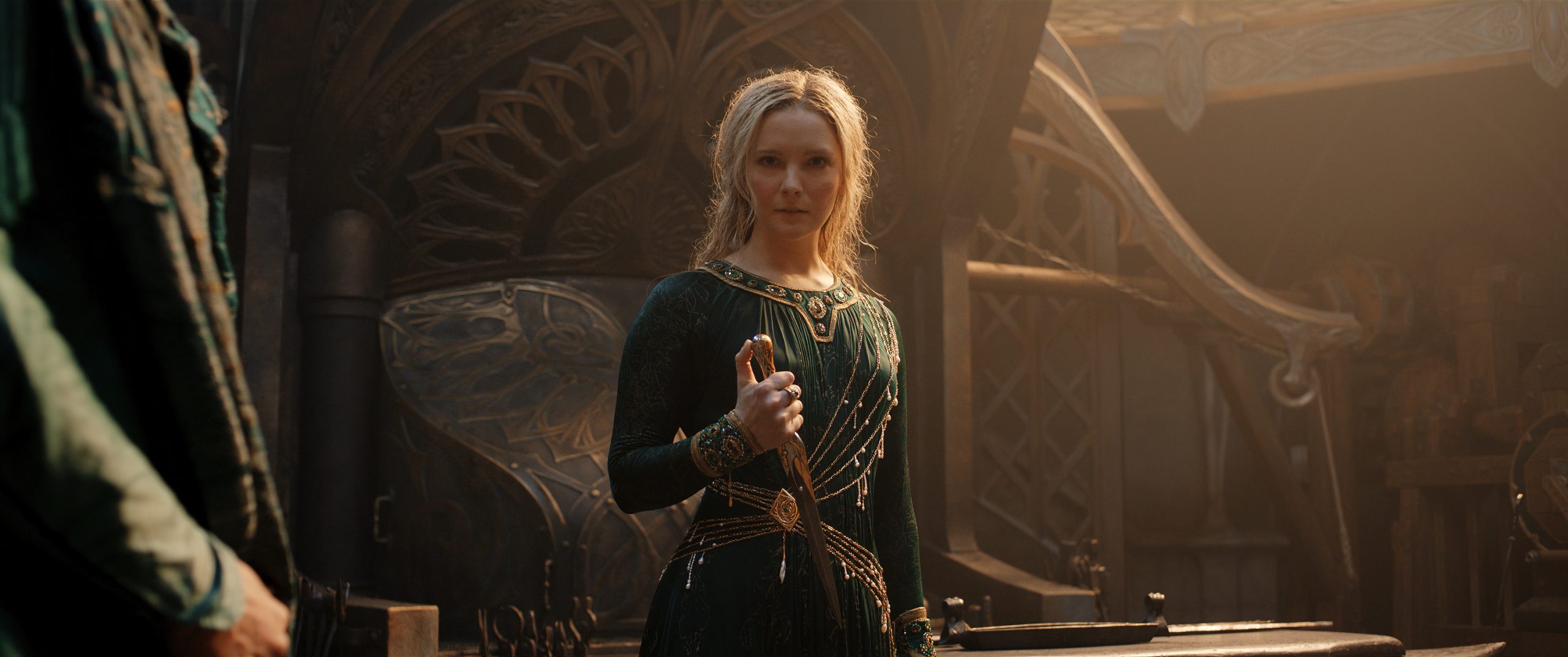
Morfydd Clark as Galadriel in The Lord of the Rings: The Rings of Power
This is another example of McKay, Payne, and Prime Video clearly not understanding anything about Tolkien’s story despite their claims that they are always going back to the book.
First, the quote McKay is referencing from The Fellowship of the Ring, is not how he actually presents it. During the chapter titled The Mirror of Galadriel, Tolkien writes, “I know what it was that you last saw,’ she said; ‘for that is also in my mind. Do not be afraid! But do not think that only by singing amid the trees, nor even by the slender arrows of elven-bows, is this land of Lothlórien maintained and defended against its Enemy. I say to you, Frodo, that even as I speak to you, I perceive the Dark Lord and know his mind, or all of his mind that concerns the Elves. And he gropes ever to see me and my thought. But still the door is closed!”
Her knowledge of Sauron does not come from a previous relationship with him as depicted by McKay and Prime Video in The Rings of Power, but comes from the ring of power that she wields.
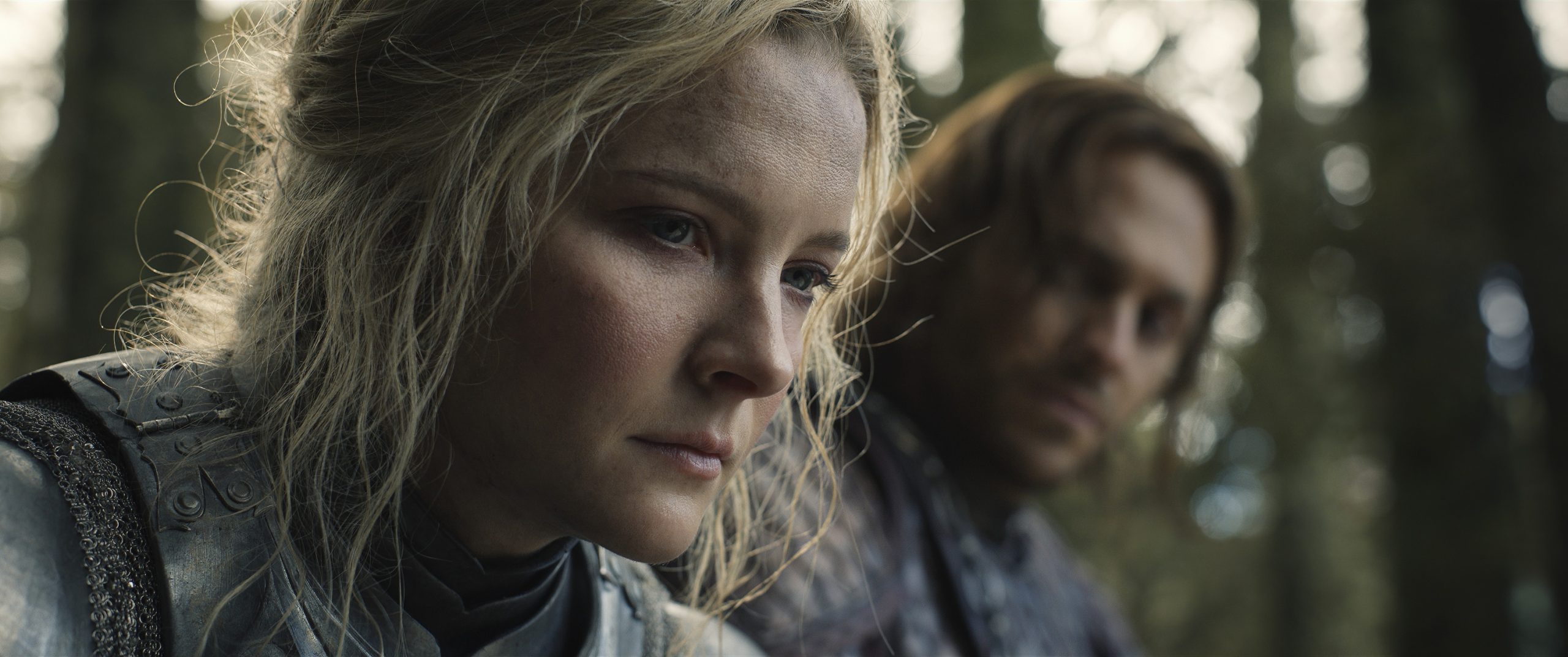
Morfydd Clark as Galadriel and Charlie Vickers as Halbrand in The Lord of the Rings: The Rings of Power
If only McKay had continued to read the chapter this would be easily understood since Tolkien writes, “She lifted up her white arms, and spread out her hands towards the East in a gesture of rejection and denial. Ea¨rendil, the Evening Star, most beloved of the Elves, shone clear above. So bright was it that the figure of the Elven-lady cast a dim shadow on the ground. Its rays glanced upon a ring about her finger; it glittered like polished gold overlaid with silver light, and a white stone in it twinkled as if the Evenstar had come down to rest upon her hand. Frodo gazed at the ring with awe; for suddenly it seemed to him that he understood.”
“‘Yes,’ she said, divining his thought, ‘it is not permitted to speak of it, and Elrond could not do so,” Tolkien continued. “But it cannot be hidden from the Ring-bearer, and one who has seen the Eye. Verily it is in the land of Lórien upon the finger of Galadriel that one of the Three remains. This is Nenya, the Ring of Adamant, and I am its keeper. ‘He suspects, but he does not know – not yet. Do you not see now wherefore your coming is to us as the footstep of Doom? For if you fail, then we are laid bare to the Enemy. Yet if you succeed, then our power is diminished, and Lothlórien will fade, and the tides of Time will sweep it away. We must depart into the West, or dwindle to a rustic folk of dell and cave, slowly to forget and to be forgotten.’”
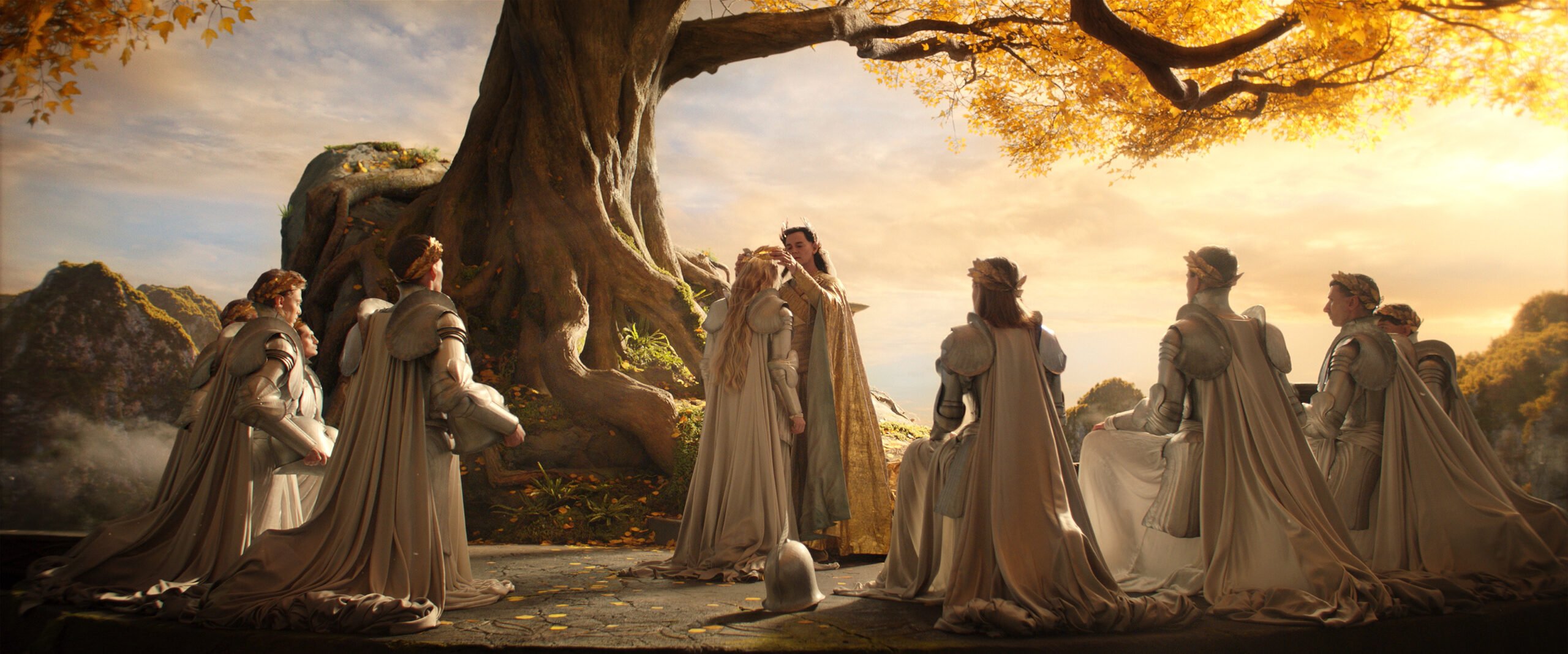
Morfydd Clark as Galadriel and Benjamin Walker as High King Gil-galad in The Lord of the Rings: The Rings of Power
Tolkien even has Frodo ask why he is unable to perceive the thoughts of the others who wear the other rings.
He wrote, “‘You have not tried,’ she said. ‘Only thrice have you set the Ring upon your finger since you knew what you possessed. Do not try! It would destroy you. Did not Gandalf tell you that the rings give power according to the measure of each possessor? Before you could use that power you would need to become far stronger, and to train your will to the domination of others. Yet even so, as Ring-bearer and as one that has borne it on finger and seen that which is hidden, your sight is grown keener. You have perceived my thought more clearly than many that are accounted wise. You saw the Eye of him that holds the Seven and the Nine. And did you not see and recognize the ring upon my finger? Did you see my ring?’ she asked turning again to Sam.”
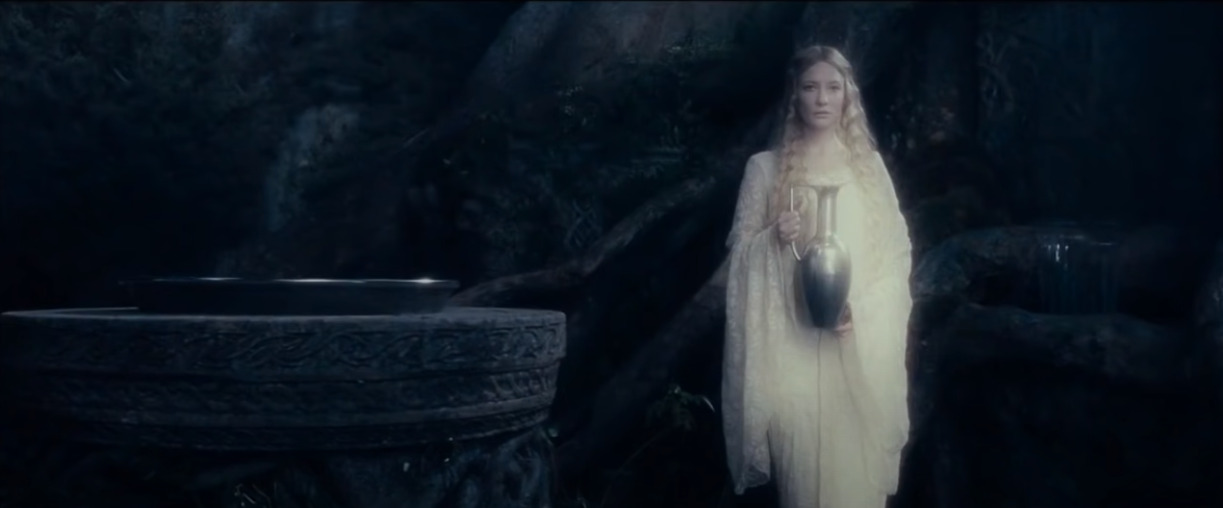
The Lord of The Rings: The Fellowship of the Ring Extended Edition
Tolkien reiterated this in The Silmarillion as well. He wrote, “Secretly Sauron made One Ring to rule all the others, and their power was bound up with it, to be subject wholly to it and to last only so long as it too should last. And much of the strength and will of Sauron passed into that One Ring; for the power of the Elven-rings was very great, and that which should govern them must be a thing of surpassing potency; and Sauron forged it in the Mountain of Fire in the Land of Shadow. And while he wore the One Ring he could perceive all the things that were done by means of the lesser rings, and he could see and govern the very thoughts of those that wore them.”
However, he was unable to perceive the three rings of the Elves because they were able to perceive him. Tolkien explained, “But the Elves were not so lightly to be caught. As soon as Sauron set the One Ring upon his finger they were aware of him; and they knew him, and perceived that he would be master of them, and of all that they wrought. Then in anger and fear they took off their rings.”
McKay should have taken the advice he and Payne kept giving themselves by returning to the book and actually reading it rather than clearly misinterpreting single lines devoid of context in an attempt to justify their destruction of Tolkien.
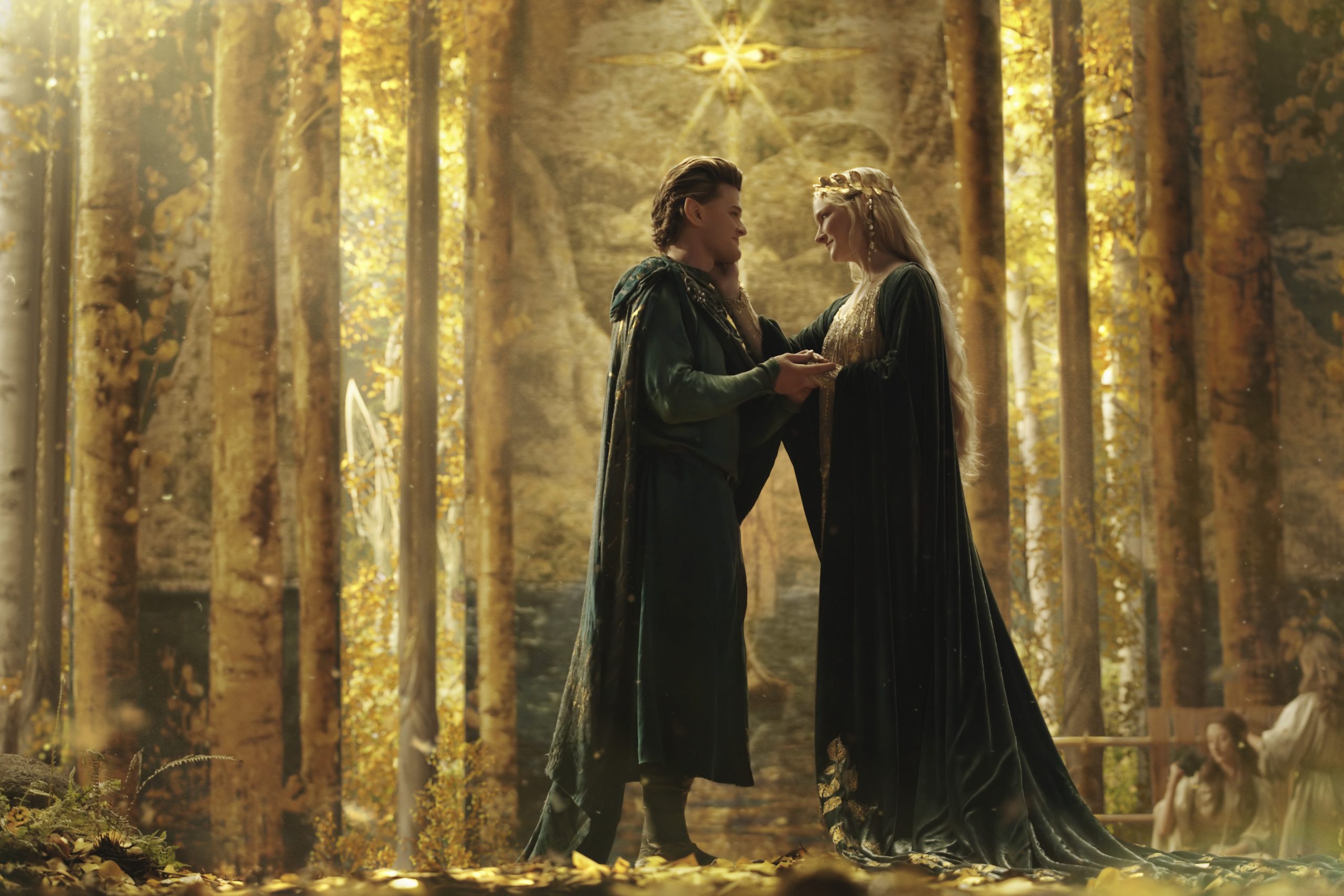
Robert Aramayo as Elrond and Morfydd Clark as Galadriel in The Lord of the Rings: The Rings of Power Credit: Ben Rothstein/Prime Video Copyright: Amazon Studios
As for the temptation of the One Ring being a test she must pass in order to go West, he got that right, but that temptation is not linked with Sauron as again Tolkien writes in the same chapter, “Galadriel laughed with a sudden clear laugh. ‘Wise the Lady Galadriel may be,’ she said, ‘yet here she has met her match in courtesy. Gently are you revenged for my testing of your heart at our first meeting. You begin to see with a keen eye. I do not deny that my heart has greatly desired to ask what you offer. For many long years I had pondered what I might do, should the Great Ring come into my hands, and behold! it was brought within my grasp. The evil that was devised long ago works on in many ways, whether Sauron himself stands or falls. Would not that have been a noble deed to set to the credit of his Ring, if I had taken it by force or fear from my guest?”
As you can see the evil of the ring stands whether or not Sauron stands or falls. The temptation has nothing to do with Galadriel’s personal connection to Sauron, but is a metaphysical struggle between good and evil. Galadriel chooses what is true, right, and good. She rejects the temptation of the ring.
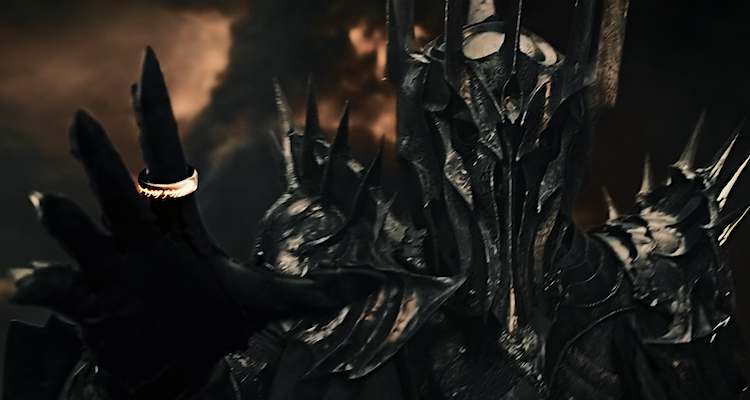
The Lord of the Rings: The Fellowship of the Ring (2001), Warner Bros. Pictures
To highlight this point that the evil of the ring would continue without Sauron, Tolkien wrote in Letter 246 to Mrs. Eileen Elgar, “In the ‘Mirror of Galadriel’, 1381, it appears that Galadriel conceived of herself as capable of wielding the Ring and supplanting the Dark Lord. If so, so also were the other guardians of the Three, especially Elrond. But this is another matter. It was part of the essential deceit of the Ring to fill minds with imaginations of supreme power. But this the Great had well considered and had rejected, as is seen in Elrond’s words at the Council. Galadriel’s rejection of the temptation was founded upon previous thought and resolve.”
He continued, “In any case Elrond or Galadriel would have proceeded in the policy now adopted by Sauron: they would have built up an empire with great and absolutely subservient generals and armies and engines of war, until they could challenge Sauron and destroy him by force. Confrontation of Sauron alone, unaided, self to self was not contemplated. One can imagine the scene in which Gandalf, say, was placed in such a position. It would be a delicate balance. On one side the true allegiance of the Ring to Sauron; on the other superior strength because Sauron was not actually in possession, and perhaps also because he was weakened by long corruption and expenditure of will in dominating inferiors. If Gandalf proved the victor, the result would have been for Sauron the same as the destruction of the Ring; for him it would have been destroyed, taken from him for ever. But the Ring and all its works would have endured. It would have been the master in the end.”
“Gandalf as Ring-Lord would have been far worse than Sauron,” Tolkien detailed. “He would have remained ‘righteous’, but self-righteous. He would have continued to rule and order things for ‘good’, and the benefit of his subjects according to his wisdom (which was and would have remained great).”
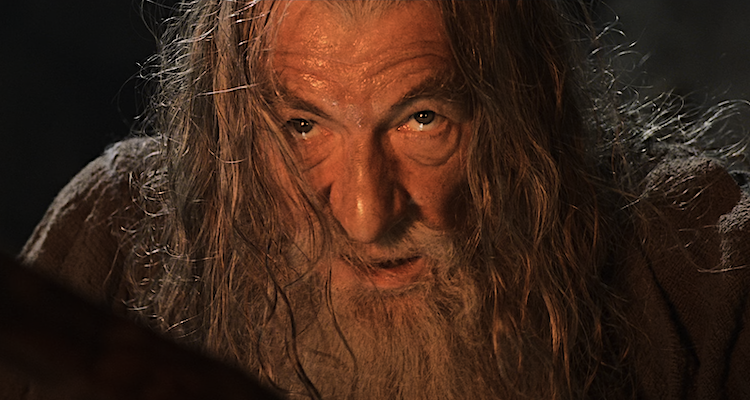
The Lord of the Rings: The Fellowship of the Ring (2001), Warner Bros. Pictures
As for why Galadriel felt that this temptation of the ring was a test, Tolkien explained it in Letter 320 to Mrs. Ruth Austin in 1971.
He wrote, “I think it is true that I owe much of this character to Christian and Catholic teaching and imagination about Mary, but actually Galadriel was a penitent: in her youth a leader in the rebellion against the Valar (the angelic guardians). At the end of the First Age she proudly refused forgiveness or permission to return. She was pardoned because of her resistance to the final and overwhelming temptation to take the Ring for herself.”
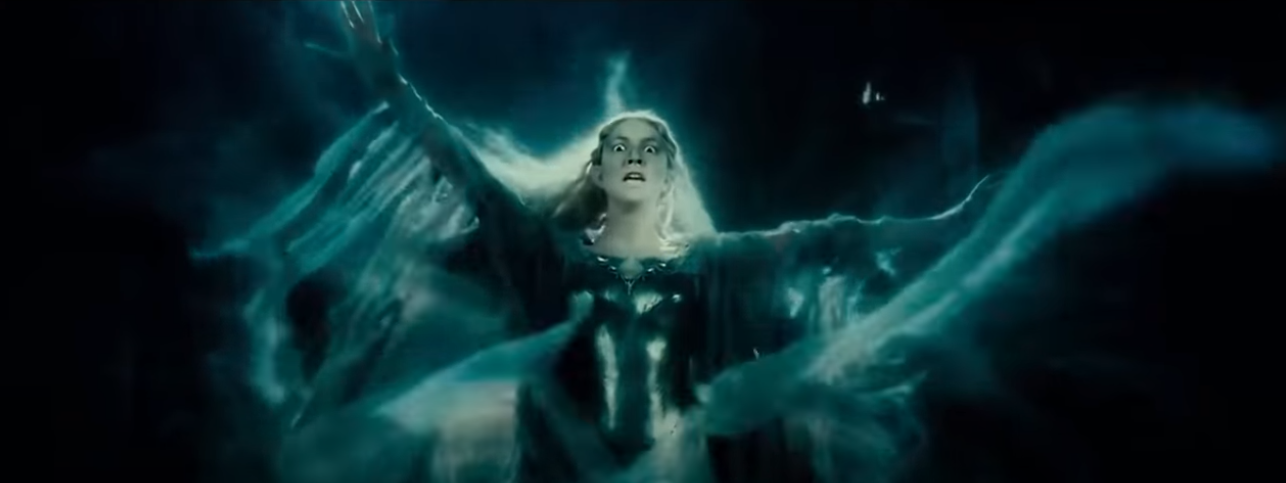
Cate Blanchett as Galadriel in The Lord of the Rings: The Fellowship of the Ring
Even if McKay’s claim about the temptation of the ring being connected to her emotions about Sauron was true, it actually undermines the actual temptation of the ring in The Fellowship of the Ring. She has already rejected Sauron at Eregion. The test of the Ring doesn’t have as much meaning as it would have if she had already faced a similar temptation and defeated it.
The “previous thought and resolve” that Tolkien explains about the temptation is significantly reduced. That’s not to say there couldn’t be a second temptation, one of the themes of The Scouring of the Shire is the battle and struggle against evil continues even though a major battle might be won against it.
However, to reiterate the significance of the temptation of the Ring is now significantly less important to Galadriel as a creator. That struggle, that brink she appears to be on when she gives her speech about a Dark Queen can now be seen as just excessive theatrics rather than the actual brink it was when originally written by Tolkien.
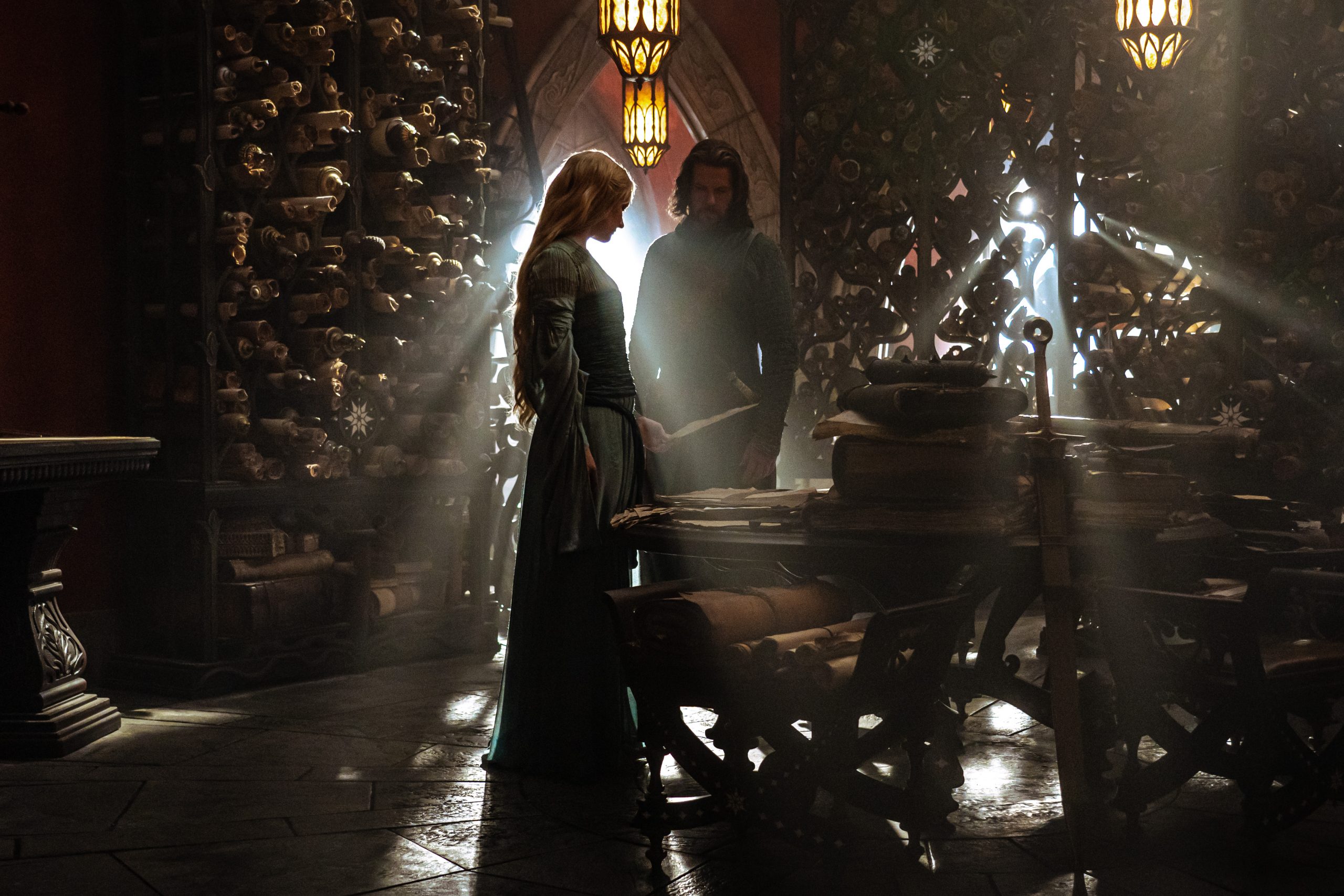
Morfydd Clark as Galadriel and Lloyd Owen as Elendil in Prime Video’s The Lord of the Rings: The Rings of Power
What do you make of McKay’s explanation on why they chose to disguise Sauron as Halbrand?
More About:Books Television
